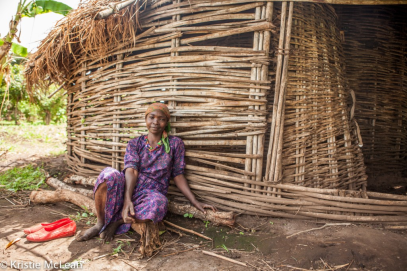Raising Awareness, Raising Birthweight
by Kristie McLean
Each year, millions of children are conceived only to face life’s end prematurely. Globally, ten million infants and children die each year before their fifth birthday, with 93% of these deaths occurring in Africa and Asia (Lancet. 2010. 375(9709):100-3)
Less prevalent in news stories is the topic of low birthweight (LBW). Classified as a baby weighing less than 5 pounds, 8 ounces at birth, LBW occurs in about 1 of every 12 babies born in the United States. Sometimes, LBW occurs when a baby is born prematurely. Other times, it’s from fetal growth restrictions either because the parents themselves are small or because something happened in the womb to slow or inhibit growth [Source: March of Dimes].
A mother’s health can contribute to LBW in her baby – she may have chronic health issues, infections, or not gain enough weight during pregnancy. A problem with the placenta may also contribute to LBW.
Some LBW babies are healthy even though they are small; however, LBW babies can suffer from serious health problems including: respiratory distress syndrome, bleeding in the brain, heart and intestinal problems, and vision loss [Source: March of Dimes], and this is not to mention additional medical problems that LBW babies may have later in life.
Particularly in developing countries, where access to medical care is often challenging, LBW babies often have less strength and immunity. Their small size, coupled with persistently poor nutrition and hygiene means that LBW babies are 20 times more likely to die in infancy than heavier babies [Source: Low Birth Weight: Country, Regional, and Global Estimates, UNICEF].
GIRHL has developed a low cost, innovative solution to address the global issues of stillbirth and low birth weight. This solution is based upon recent findings of an emerging area of research – sleep in pregnancy. In particular, two recent studies concluded that pregnant women who slept on their backs were 8 times more likely to experience stillbirth and 5 times more likely to have a LBW baby when compared with women who slept on their side. Extrapolating from the medical literature, this increase in likelihood could be caused by the weight of the uterus compressing the veins that lead back to the mother’s heart and the arteries that provide nourishment to the developing fetus. Estimates from these studies show that by modifying sleep position alone, the rates of stillborn and LBW infants could be reduced by 15-25%.
In an effort to elucidate this potential reduction in the rates stillbirth and LBW, GIRHL has teamed up with researchers and clinicians affiliated with the University of Michigan, Prince County Hospital, Dalhousie Medical School, and University of Ghana Medical School. The team, under the leadership of Allan Kember, has applied to Grand Challenges Canada’s Stars in Global Health program for funding to support research and development of a novel device that will monitor a woman’s sleep patterns and significantly reduce the amount of time a pregnant woman sleeps on her back.
If the team is awarded the Stars in Global Health grant (Phase I), it will conduct studies that will involve pregnant volunteers in Canada and Ghana. By working with health providers at all levels (i.e. local midwives, obstetricians, and traditional birth attendants), GIRHL’s role will contribute to the assessment of cultural acceptability of the device in Ghana, the optimization of the device design and production path, and the coordination of supply chain logistics during Phase I. If the team is awarded the Stars in Global Health grant for Phase II, Allan will lead them in conducting a large-scale study to evaluate the epidemiological impact of the intervention where GIRHL will play an integral role by using social enterprise to scale up access and use of the device as a part of standard antenatal care for women around the globe.
Please show your support for Allan and the team by watching their VIDEO and voting for their Bold Idea with Big Impact for Grand Challenges Canada’s Stars in Global Health grant!

